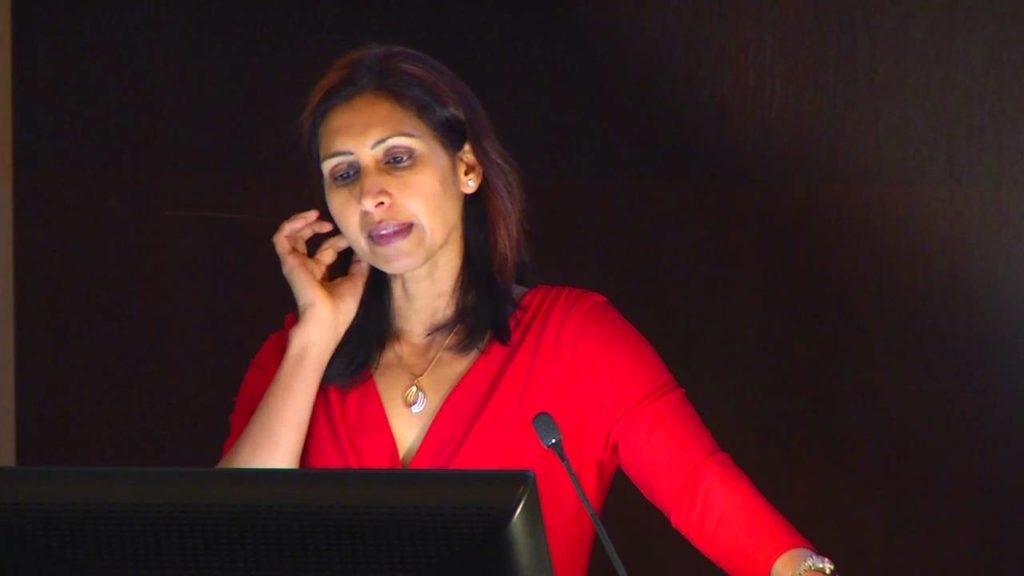
We talked to Dr Ranjana Srivastava, a Melbourne oncologist and regular columnist for The Guardian newspaper, about what patient trust means to her. We talked about why trust is important, how changes to our digital culture are affecting patient’s trust in doctors, and what doctors can do to build better trust with patients.
Tell me a little about your work as a doctor and writer
“I’m a medical oncologist in the Victorian public health system. I specialise in geriatric oncology, which focuses on the care of the elderly and very elderly patients who have cancer. The work of a geriatric oncologist is to ensure that cancer treatment is tailored to the needs of the individual and considers not only the medical diagnosis but also their psychological, social and functional health.
“Five years ago, I started writing for The Guardian newspaper. My column is published worldwide. I write every fortnight and think that I have finally run out of things to say. But the thing about medicine is that it is so full of meaningful experiences, amazing stories and moving insights that there is always something to write about.
“In the background I am always working on a book. My next book, due out soon, is about the qualities it takes to be a successful and satisfied doctor. It is aimed at students aspiring to study medicine. The book after this is on living and dying well – it’s a more sobering piece of work and I am making my way through it slowly.”
What does patient trust mean to you? Why is it important?
“In medicine, trust is paramount. Without trust in the doctor, there is no doctor-patient relationship. We know that trust in the doctor helps the diagnostic and management process because our patients are likely to reveal more about themselves.
“If there is a lack of trust, patients will avoid taking their medication but not mention it to the doctor. However, in the presence of trust, a patient is more likely to raise these issues with the doctor and reach a solution, which may involve dose modification or a change in therapy.”
Do you think patient trust is being jeopardised in modern times?
“In an era where medical negligence, abuse of patients, and other egregious behaviour are widely publicised (as they should), trust in the entire medical profession suffers.
“I think that trust in doctors and the healthcare profession in general remains high, and rightly so. Most people entrust us with their health and know that we will do the best we can. Unfortunately, there are rogue players to be found in every profession, including medicine.”
What can happen when patient trust is broken?
“Damaged trust can be harmful, even destructive, for patients who rely on doctors for healthcare, but also care of their emotions. Hurt patients may not return for essential healthcare and extend their distrust towards other healthcare providers. When this happens, societal welfare suffers. There is a saying that trust takes years to build, seconds to break, and forever to repair.
“Unfortunately, I know this to be true from bitter experience. Years ago, I wrote an essay that a former patient read and assumed to be all about him. I had written on universal themes as I always do, and there was no identifying, defamatory or disrespectful content, but the writing had clearly strayed too close to the patient’s personal experience.
“He wrote me a furious letter and aghast, I immediately apologised. But my apology didn’t pass muster and the patient moved away. Although I had not wronged the patient, that was immaterial because my actions had led to a breach of trust. That breach was never repaired, and I have since reflected frequently on the pain my perceived slight might have caused the patient and his family.”
Doctors are some of the most trusted professionals among Australians. How do you manage this expectation of trust and privacy? What does it mean to you?
“Managing trust isn’t hard if I remind myself to keep the patient at the centre of my thinking. No self-respecting doctor wants to let a patient down. The privacy of patients should be sacrosanct. Again, this mostly comes from being an ethical practitioner who takes seriously one’s duty towards the sick and vulnerable.”
How important is protecting patient data to you? Why?
“I take the job of patient privacy very seriously. Apart from adhering to basic rules such as never discussing patients in lifts and public places, I am careful to safeguard their medical details. Patients entrust us with their care but it’s reasonable for them to assume that they can also trust us to maintain their privacy while delivering care. Protecting their data means shredding their private information when not needed and sharing their information with only relevant providers.”
What is the responsibility of doctors when engaging with third parties who have access to patient data?
“This is a live issue in medicine whose importance is set to grow. I acknowledge that it can be very hard for the average doctor to know the ins and outs of all the technology used to deliver modern medicine. When I was an intern, medicine was almost entirely paper-based. Now, patient care virtually stops when there is a computer failure.
“Breach of patient data is but one way in which modern, convenient technology can cause real harm to patients. We are all entitled to keep our details private even if the world may not think those details as important, objectionable, or personal as we do. Doctors need to be acutely mindful of these sensitivities when themselves engaging with patients and when they use other providers who have access to patient data. We must make stringent efforts to familiarise ourselves with who has access to the data and why, and the role we may be playing in the process.
“In this day of automation, doctors cannot afford to remain naïve about how technology affects the lives of our patients. I would like to think that it’s mostly a positive role when patients use technology, but we must guard our patients from being used by the technology.
“Patients might forgive us for a truly inadvertent breach of privacy, but they have a right to be angry when we exploit their data for gain. Data reaching the wrong hands can be highly consequential. A patient’s family may discover issues intended to be private; insurance coverage may be denied; and relationships might suffer permanently.”
In today’s digital age, patient privacy is a big talking point. Do you foresee any big changes to medicine because of this?
“Until now, most patients have taken their health privacy for granted. However, recent events,
including the Australian government’s introduction of a universal digitised health record, has brought patient privacy issues to the fore. I expect that most patients will have to start engaging with these issues and this will shape some important conversations in healthcare. I look forward to patients having a greater say in matters relating to their health.“



